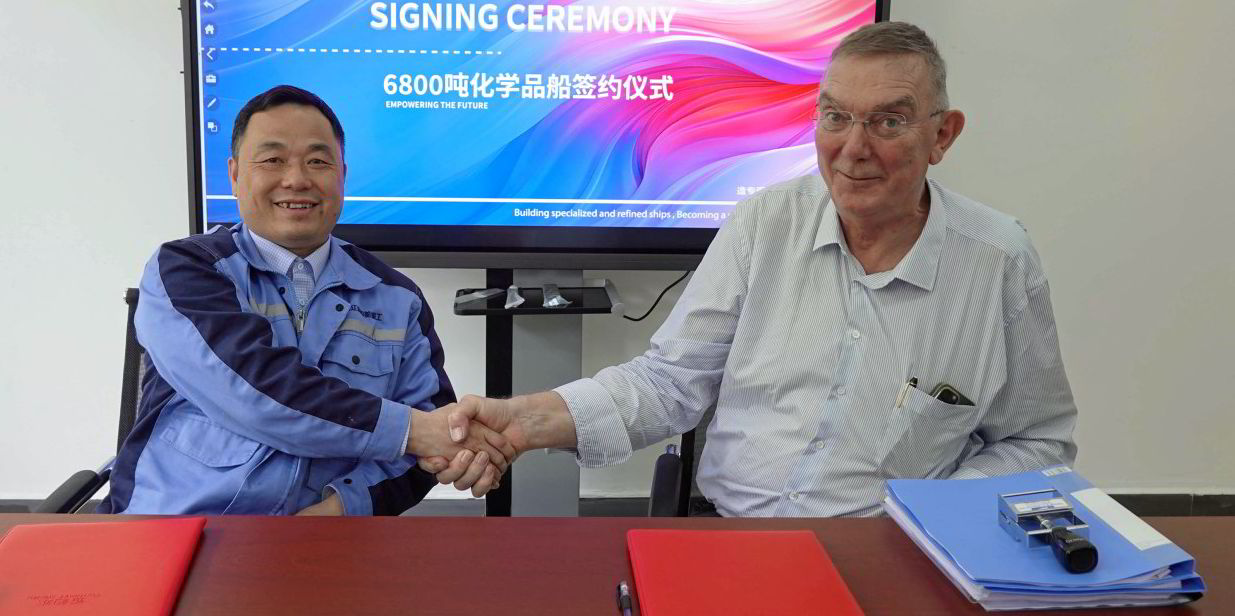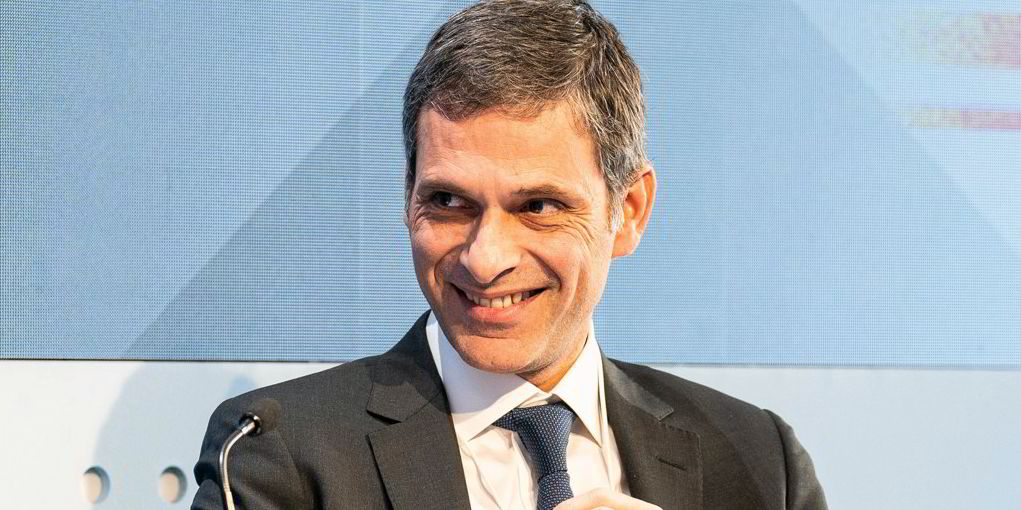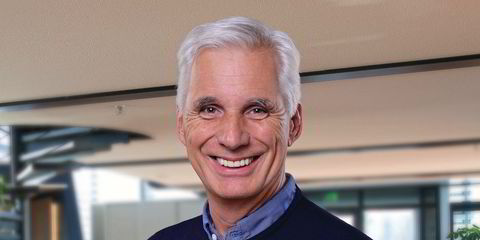Spending money on decarbonisation now could save on extra costs in the future, according to Wartsila’s marine president Roger Holm.
The Finnish shipping technology group has noted an uptick in investment in eco newbuildings and green retrofitting so far this year.
Holm told TradeWinds demand “looks positive in general”.
“I would also say that decarbonisation is happening. It’s really picking up speed,” he said.
The president praised measures like the European Union Emissions Trading System (ETS) as providing very clear rules for shipping.
This is allowing owners to join up the dots between costs, emissions and decarbonisation, Holm added.
He advised companies to invest in efficiency technologies and future fuels now.
“If you don’t move it might actually get more expensive,” Holm said.
He explained that 15% of total shipping capacity operates in EU waters, a “fairly significant part”.
“And if you look at the curve you see that you will double the fuel cost by 2030,” the executive told TradeWinds.
Level playing field coming
“We will see that it will be a level playing field around 2035 between green fuels and fossil fuels. And after 2035 it will be more expensive to operate on fossil fuels,” he said.
“2035 is just around the corner in shipping,” Holm warned. “So as a shipowner, you need to think about how to do this at the right speed. And we see this is happening already in the market which is positive,” Holm added.
Wartsila has also observed more interest in newbuildings from offshore vessel owners.
“We have seen very good activity on the life cycle side already. It’s expected to grow a bit also on the newbuild side because there are a lot of activities in the offshore market at the moment so probably we will see growth there as well, from of course historically very low levels,” the marine boss said.
Holm also said Wartsila is having “very good discussions” in the market about contracts for its first ammonia engine.
“We haven’t agreed yet on the first delivery contract,” he added.
Early 2025 for ammonia engine deal
The company is looking at early 2025 for the debut deals.
Work is “progressing very well”, Holm said.
“It’s more up to practicalities now — when can we sign the first ones and when would that then be delivered?” he added.
In the longer term, decarbonising shipping by 2050 would be a change unlike anything seen before in the industry, Holm believes.
“I think it’s going to continue on that pathway because we don’t foresee that shipping would have any massive technology change other than the fuel change,” he told TradeWinds.
“When we get to 2050 for example, ammonia will play a big role as fuel. It will be more standard fuel then of course, together with other fuels. We will see methanol and probably also see LNG for a long, long time. So we are moving really into a multi-fuel environment,” Holm explained.
“So for us, this is positive because engine technology is the most flexible technology there is for the different fuels,” he added.






